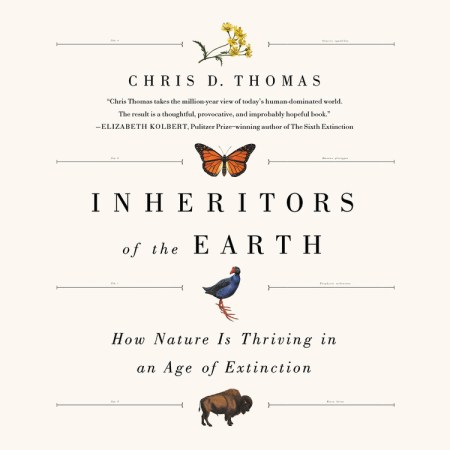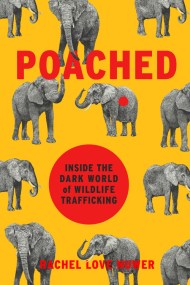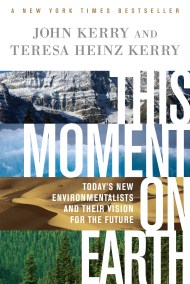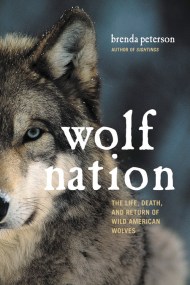Shopping Cart
Inheritors of the Earth
How Nature Is Thriving in an Age of Extinction
Description
Human activity has irreversibly changed the natural environment. But the news isn’t all bad.
It’s accepted wisdom today that human beings have permanently damaged the natural world, causing extinction, deforestation, pollution, and of course climate change. But in Inheritors of the Earth, biologist Chris Thomas shows that this obscures a more hopeful truth — we’re also helping nature grow and change. Human cities and mass agriculture have created new places for enterprising animals and plants to live, and our activities have stimulated evolutionary change in virtually every population of living species. Most remarkably, Thomas shows, humans may well have raised the rate at which new species are formed to the highest level in the history of our planet.
Drawing on the success stories of diverse species, from the ochre-colored comma butterfly to the New Zealand pukeko, Thomas overturns the accepted story of declining biodiversity on Earth. In so doing, he questions why we resist new forms of life, and why we see ourselves as unnatural. Ultimately, he suggests that if life on Earth can recover from the asteroid that killed off the dinosaurs, it can survive the onslaughts of the technological age. This eye-opening book is a profound reexamination of the relationship between humanity and the natural world.
It’s accepted wisdom today that human beings have permanently damaged the natural world, causing extinction, deforestation, pollution, and of course climate change. But in Inheritors of the Earth, biologist Chris Thomas shows that this obscures a more hopeful truth — we’re also helping nature grow and change. Human cities and mass agriculture have created new places for enterprising animals and plants to live, and our activities have stimulated evolutionary change in virtually every population of living species. Most remarkably, Thomas shows, humans may well have raised the rate at which new species are formed to the highest level in the history of our planet.
Drawing on the success stories of diverse species, from the ochre-colored comma butterfly to the New Zealand pukeko, Thomas overturns the accepted story of declining biodiversity on Earth. In so doing, he questions why we resist new forms of life, and why we see ourselves as unnatural. Ultimately, he suggests that if life on Earth can recover from the asteroid that killed off the dinosaurs, it can survive the onslaughts of the technological age. This eye-opening book is a profound reexamination of the relationship between humanity and the natural world.
Praise
"An
immensely significant book. It is fluently written, carefully thought through,
ruthlessly argued, neatly illustrated with case studies - and shockingly
contrarian."
—MattRidley, The Times (Book of the Week)
"Thoughtfully
argued, full of rich examples... This engaging, provocative and important book
paints a refreshingly optimistic picture of life on Earth"
—TheGuardian
"The inevitability (and pace) of global change demands the sort of fresh thinking that is found in Inheritors of the Earth."
—Science Magazine
"Inheritors of the Earth collects years of Thomas' field research, illuminating plant and animal species-notably one of his specialties, butterflies-flourishing all over the Earth. Thomas puts big ideas on display."
—Nautilus Magazine
"His
flowing narrative is rich in stories of his fieldwork round the world ...
Thomas's vision ... aspires to something nobler, more optimistic."
—New Scientist
"Fascinating
... Chris Thomas examines our human relationships with nature, bad and good,
and sets out a more hopeful truth to current narratives and alarms ... This is
a rich and timely tale, fearless too, with examples and cases drawn from
ecosystems across the world."
—TimesHigher Education
"[A]
thrilling and uplifting counter to the pessimism of the Anthropocene."
—BBCWildlife Magazine
"Chris Thomas takes the million-year view of today's
human-dominated world. The result is a thoughtful, provocative, and improbably
hopeful book."
—Elizabeth Kolbert, Pulitzer Prize-winning author of TheSixth Extinction
"An immensely significant book. It is fluently written,
carefully thought through, ruthlessly argued, neatly illustrated with case
studies - and shockingly contrarian."
—Matt Ridley, The Times (Book of the Week)
"His flowing narrative is rich in stories of his
fieldwork round the world ... Thomas's vision ... aspires to something nobler,
more optimistic."
—Fred Pearce, New Scientist
"Fascinating ... Chris Thomas examines our human
relationships with nature, bad and good, and sets out a more hopeful truth to
current narratives and alarms ... This is a rich and timely tale, fearless too,
with examples and cases drawn from ecosystems across the world."
—Professor Jules Pretty, Times Higher Education
"[A] thrilling and uplifting counter to the pessimism
of the Anthropocene."
—Stuart Blackman, BBC Wildlife Magazine
"A decent and humane tale about the threat and promise
of biodiversity change."
—James Lovelock, author of The Revenge of Gaia and ARough Guide to the Future
"The most interesting / challenging / surprising thing
I've read about the natural world for years."
—James Rebanks, author of The Shepherd's Life
"A provocative book that challenges us to look
positively at our human changes to the natural world and reimagine conservation
in the Anthropocene."
—Gaia Vince, author of Adventures in the Anthropocene
"Chris Thomas takes the million-year view of today's
human-dominated world. The result is a thoughtful, provocative, and improbably
hopeful book."
—Elizabeth Kolbert, author of The Sixth Extinction and Field Notes from a Catastrophe
"With a perspective that stretches many epochs into the past and forward to the year One Million A.D., Thomas reframes Earth's current ecological upheaval as a time of great creation as well as great loss. Without minimizing or excusing the damage humans have done to the planet, Inheritors of the Earth opens our eyes to the splendid and fascinating ways nature is adapting and evolving to the world we have made. He urges us to take our cue from the majestic dynamism of nature and work with other species as they change and move, rather than fighting an impossible battle to freeze the planet in time. All change is not bad. I thought I was an optimist. Thomas is the real ecological optimist."
—Emma Marris, author of Rambunctious Garden
"With Inheritors of the Earth, Chris D. Thomas issues a challenge to the conventional view of nature in decline. He urges us to embrace the environmental changes we've set in motion, daring to suggest that human activities will ultimately increase the diversity of life on Earth. A timely and provocative read."
—Thor Hanson, author of The Triumph of Seeds












